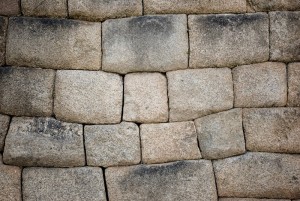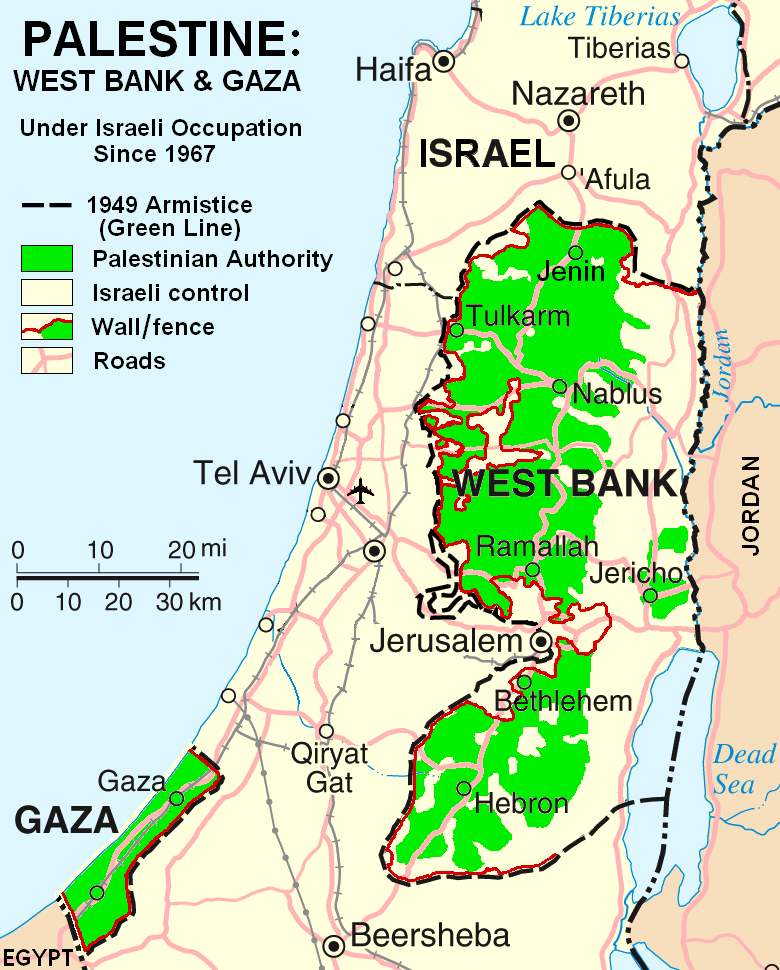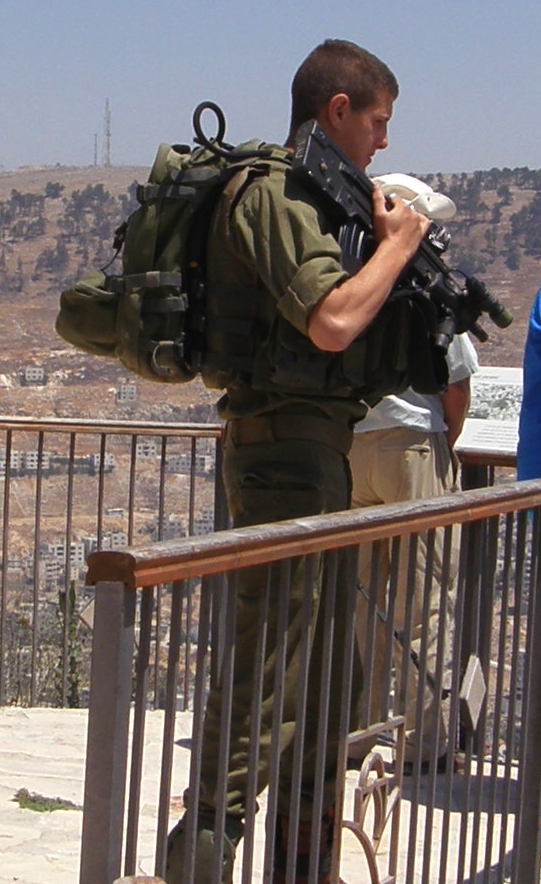====================
On the Seventh Sunday after Pentecost, July 27, 2014, this sermon was offered to the people of St. Paul’s Episcopal Church, Medina, Ohio, where Fr. Funston is rector.
(The lessons for the day were: 1 Kings 3:5-12, Psalm 119:129-136, Romans 8:26-39, and Matthew 13:31-33,44-52. These lessons can be read at The Lectionary Page.)
====================

Tell all the truth but tell it slant,
Success in circuit lies,
Too bright for our infirm delight
The truth’s superb surprise;
As lightning to the children eased
With explanation kind,
The truth must dazzle gradually
Or every man be blind.
That’s a wonderful poem, isn’t it? Tell All The Truth by Emily Dickinson: “Tell all the truth but tell it slant;” come at it obliquely, shaded as it were, because “the truth must dazzle gradually” otherwise everyone will be blinded. But for the fact that she wrote it 1868, I would suspect Jesus of having read it and following her advice in today’s gospel discourse. These several parables are very “slanted”!
Of course, it is very unlikely that Jesus related all of these parables at one time, the two we heard the last two Sundays and these five (or is it six) that are in today’s lesson, but that is the way Matthew presents them. Most probably, these seven or eight metaphors for God’s dominion were things Jesus said at different times, but as the oral tradition transmitted them to and through his followers in the years afterward the specific circumstances of each were forgotten. Just the “slanted” sort of weird imagery was remembered, so Matthew writing his gospel tale a few decades later was left to figure out how to fit them in and decided to just put them all together in one teaching session. So we have these five (or is it six) all lumped together on one Sunday, five ways to understand — I use that word advisedly — to understand God’s sovereignty played out “on earth as it is in Heaven.” The holy domain is
- like a mustard seed (and the mighty big bush it grows into);
- like yeast (leaven) in a lot of flour;
- like a treasure buried in a field;
- like a pearl of incredible value;
- like a dragnet gathering in an abundance of fish; and
- (maybe, I’m not sure of this one counts as a parable)
like a scribe tossing out a bunch of stuff, old and new.
As one commentator has suggested, “That is probably four [or is it five] images too many for one sermon.” So let’s deal with the first one primarily, the mustard seed and the tree into which Jesus says it grows.
Tree imagery as a metaphor for empire was well-known in Jesus’ time. There are at least three very important instances of it in the Hebrew scriptures, so it was familiar to the scribes, the priests, the rabbis, the Pharisees, and the Sadducees, and those who preached in the synagogues had probably made it fairly well known to their congregations, to folk like those who heard Jesus tell this parable. Those three instances are found in Ezekiel, Daniel, and the Psalms.
In the 17th Chapter of Ezekiel we read:
Thus says the Lord God: I myself will take a sprig from the lofty top of a cedar; I will set it out. I will break off a tender one from the topmost of its young twigs; I myself will plant it on a high and lofty mountain. On the mountain height of Israel I will plant it, in order that it may produce boughs and bear fruit, and become a noble cedar. Under it every kind of bird will live; in the shade of its branches will nest winged creatures of every kind. All the trees of the field shall know that I am the Lord. I bring low the high tree, I make high the low tree; I dry up the green tree and make the dry tree flourish. I the Lord have spoken; I will accomplish it. (Ez 17:22-24)
In the 4th Chapter of Daniel, King Nebuchadnezzar of Bablyon tells Daniel of a dream he has had:
Hear the dream that I saw; tell me its interpretation. Upon my bed this is what I saw; there was a tree at the center of the earth, and its height was great. The tree grew great and strong, its top reached to heaven, and it was visible to the ends of the whole earth. Its foliage was beautiful, its fruit abundant, and it provided food for all. The animals of the field found shade under it, the birds of the air nested in its branches, and from it all living beings were fed. (Dan 4:9-12)
As Daniel interprets the dream, the tree represents Nebuchadnezzar and his kingdom.
And, finally, from Psalm 104, these words would have been sung in the Temple liturgy:
You make grass grow for flocks and herds *
and plants to serve mankind;
That they may bring forth food from the earth, *
and wine to gladden our hearts,
Oil to make a cheerful countenance, *
and bread to strengthen the heart.
The trees of the Lord are full of sap, *
the cedars of Lebanon which he planted,
In which the birds build their nests, *
and in whose tops the stork makes his dwelling.
(vv. 14-18, BCP version)
Yes, metaphors of mighty trees would be part of the spiritual landscape familiar to Jesus’ hearers. But not mustard bushes! The people who first heard Jesus preach this parable must have thought he was crazy, or that he was mocking the prophets, or that he was making a joke at the expense of the priests and the rabbis.
The mustard was not, is not, despite what Jesus said, “the greatest of shrubs [which] becomes a tree, so that the birds of the air come and make nests in its branches.” The white mustard which grows in the Middle East is an invasive weed, a self-propagating, rapidly-growing, garden-ruining, field-destroying weed. Let it get into your growing space and you will never get rid of it. Jesus’ parable is not, like Ezekiel’s prophecy or the psalm’s liturgical praise, a story of a mighty and stately cedar tree. It is a “frightening tale of an invasive plant sowed perhaps in desperation because it grows and therefore might produce something usable quickly, but with it is the threat that because it is so hard to get rid of it may stultify the land and make it unavailable for future better crops. Once it is grown big it will seed itself again and again….” (English clergyman Christopher Burkett) It can’t be controlled!
And that may be the point of Jesus’ metaphor: the domain of God is like the mustard seed, not because from small things great things may come (the usual interpretation of this parable), but rather because the invasive mustard cannot be controlled. It is like the Wind of God which “blows where it chooses, and you hear the sound of it, but you do not know where it comes from or where it goes.” (Jn 3:8) Once it gets started, you cannot control it.
It’s one of those Jesus-turns-the-world-on-its-head things, Jesus-tells-the-truth-in-a-slanted-way things, using a perverse and noxious weed as a metaphor for the reign of God.
The parable of the yeast in the dough makes that same point! Our NRSV translation says that the woman “mixed” it into her flour and we assume that this would be so that the bread would rise. However, the Greek verb Jesus uses is not the word for “mix.” It is the word in Greek is engkrupto — the root of our word “encryption” — it means “to hide” or “to conceal.” Like the tiny mustard seed, the yeast could not be seen — it was hidden in the meal, into “three measures” of the meal, which is an important detail.
Yeast, for us, is a useful ingredient in baking. For First Century Jews, however, yeast was a problem; for Jews of Jesus’ day leaven was a symbol of filth and corruption. Anything that was leavened with yeast was forbidden in the Temple. This woman was playing with fire! As a symbol of God’s dominion, this yeast is fire of the Holy Spirit: wherever it is present, things get changed and transformed. A tiny, hidden bit of it can work major changes — when we understand that that “three measures” of flour is enough to make 150 loaves of bread, we get that point! The growth of the yeast and the changes it makes in a huge amount of dough are as uncontrollable as the invasive mustard weed that takes over the field — and the point is the same: you cannot control the reign of God; once it gets started, look out!
Yet another of those Jesus-turns-the-world-on-its-head things, Jesus-tells-the-truth-in-a-slanted-way things, using the foul corruption of leaven as a metaphor for the reign of God.
The hiddenness of the yeast, the small invisibility of the mustard seed, link these parables with the next two — the treasure hidden in the field and the unexpected discovery of the priceless pearl. The reign of God is not only uncontrollable, it is surprising. Hidden, invisible, unexpected, it comes upon us in surprising ways and, uncontrollable though it may be, the changes it makes in our lives are beyond price, more valuable than we could ever imagine.
Which brings us to the last two metaphors, the dragnet full of fish, some good, some bad, in need of sorting out, and the scribe who is like a master of a household sorting old and new. The metaphor of the fish is yet another image of the final judgment, like the separating of wheat from the darnel in the parable of the weeds, or the sorting of the sheep from the goats in Jesus’ description of the Last Day; it is a warning for the sinful, but also a promise for those who faithfully follow the Lord. What, however, are we to make of the master of the house bringing out things old and things new?
This parable, it has been suggested, authorizes the followers of Christ who have been properly instructed, who have studied our catechisms and who have continued to study scripture and church tradition, who are schooled in the scriptures and in our communities’ histories, to re-interpret that scripture and that tradition, to bring out of our treasure of scripture and tradition that which is new, new insights, new interpretations, new ways of being God’s People even though those may not explicitly have been recorded in any previous text, to tell the truth slanted in a way that no one has slanted it before.
This accords with the ancient presupposition that properly trained scribes had the ability to decipher and interpret sacred texts. Followers of Jesus are to be trained scribes. They — WE — are to continuously study the scriptures, to be educated and trained, to have the ability to invoke tradition (the “something old”) and to contribute novel insights that have not previously offered (the “something new”).
On Tuesday, we celebrate the fortieth anniversary of a small, but remarkable event in the life of the church. On July 29, 1974, eleven women were ordained to the priesthood at Church of the Advocate in Philadelphia, Pennsylvania. Their ordination was not sanctioned by the canons of the church; the ordination of women had been hotly debated in two or three or more meetings of the General Convention, but had not yet been approved. Nonetheless, four bishops decided that they could not wait further parliamentary wrangling on the question.
Newsworks, a Philadelphia news journal, this week published this description of the service:
It was hot that day — July 29, 1974 — and the church was packed with more than 2,000 people — including family, congregants, and media. Not all were friendly.
“There was one protester who was very dramatic and said that these women could offer up nothing but the sight, sound, and smell of perversion,” said [Allison] Cheek [one of the eleven]. “Some in the congregation began to boo and hiss at that moment.”
“On one level it was scary,” said [Nancy] Wittig, another member of the 11. “But it was very clear as we got started that this was not just some vacant daydream by a bunch of women, but indeed a movement that was happening in the church.”
Delivering the sermon was Charles Willie, an African-American professor of education at Harvard University and a member of the Episcopal House of Deputies. He compared the ordination to the civil rights movement.
“This shouldn’t be seen as an act of arrogant disobedience,” said Dr. Willie from the podium. “But an act of tender defiance.” (Newsworks, 24 July 2014)
That “act of tender defiance” changed the church. The next meeting of the General Convention, in 1976, voted to approve the priestly ordination of women and, as Newsworks noted, the decision was “broader than just allowing women to the priesthood — it called for gender equality at all levels of church hierarchy, including bishops.” Today, nearly a third of the priests in our church are women and our current presiding bishop is a woman: the Most Rev. Katharine Jefferts Schori.
If the protestor at the ordination of the Philadelphia 11 was right, if there was about it “the sight, sound, and smell of perversion,” it was the perverseness of the mustard seed; it was the corruption of the yeast hidden in three measures of flour; it was the uncontrollable contrariness of the Holy Spirit and it has changed the church.
And for that we give thanks. Let us pray:
God of surprises, you startle us with truth we do not see, as we do not see the mustard seed; with truth that may be hidden from us, as the yeast is hidden in the dough; with truth that is as surprising as the unexpected treasure and as priceless as the great pearl. We thank you for the ministry of women throughout the church, and especially for the ministry of women ordained to the priesthood; we offer you special thanks for the witness and ministry of the Philadelphia 11 and of the bishops and others who supported them in their discernment of your call to priesthood. Amaze us with your power and grace; call us, empower us, and lead us through your uncontrollable Spirit to bring out of our treasure and into service in your world things new and things old, that your Name may be glorified among all people. All this we ask through your Son our savior Jesus Christ, who is alive and reigns with you and that same Spirit, one God, now and forever. Amen.
====================
A request to my readers: I’m trying to build the readership of this blog and I’d very much appreciate your help in doing so. If you find something here that is of value, please share it with others. If you are on Facebook, “like” the posts on your page so others can see them. If you are following me on Twitter, please “retweet” the notices of these meditations. If you have a blog of your own, please include mine in your links (a favor I will gladly reciprocate). Many thanks!
====================
Father Funston is the rector of St. Paul’s Episcopal Church, Medina, Ohio.
 Paul often ends his correspondence with these requests that the readers convey his personal greetings to specifically named people. I often find myself skimming those parts of the reading, just passing quickly over them. But, also, I often find myself pausing at these names, wondering about them. Who were they? What did they do in their daily lives? How is it that Paul was personally acquainted with them?
Paul often ends his correspondence with these requests that the readers convey his personal greetings to specifically named people. I often find myself skimming those parts of the reading, just passing quickly over them. But, also, I often find myself pausing at these names, wondering about them. Who were they? What did they do in their daily lives? How is it that Paul was personally acquainted with them?
 For the past several days, the Daily Office Lectionary has required us to read sections of the Book of Joshua detailing the conquest of the land “from the Jordan to the Great Sea in the west.” I have dutifully read those lessons every day. I have been deeply troubled by them and by the suggestion (which I have seen some make on Facebook and other online sources) that the “history” set out in the Book of Joshua demonstrates God’s approval of the conquest of “biblical Israel” by the modern state of Israel. I have avoided writing anything about these lessons in these daily reflections on this blog.
For the past several days, the Daily Office Lectionary has required us to read sections of the Book of Joshua detailing the conquest of the land “from the Jordan to the Great Sea in the west.” I have dutifully read those lessons every day. I have been deeply troubled by them and by the suggestion (which I have seen some make on Facebook and other online sources) that the “history” set out in the Book of Joshua demonstrates God’s approval of the conquest of “biblical Israel” by the modern state of Israel. I have avoided writing anything about these lessons in these daily reflections on this blog. Until our twenty-fifth wedding anniversary my wife had never traveled overseas. She’d been to Canada, but that was it for foreign travel for her. For our anniversary we went to Ireland, something we’d talked about doing for many years. In fact, it had been my plan for our honeymoon, but that (obviously) didn’t happen.
Until our twenty-fifth wedding anniversary my wife had never traveled overseas. She’d been to Canada, but that was it for foreign travel for her. For our anniversary we went to Ireland, something we’d talked about doing for many years. In fact, it had been my plan for our honeymoon, but that (obviously) didn’t happen.  Two weeks ago, I stood on Mt. Gerizim with 17 friends looking over to Mt. Ebal. We read this text; we read Deuteronomy 27 in which the explicit curses to be read from Mt. Ebal are set forth. We pondered what it means for a people to live in a land divided by blessings and curses. Lost in our thoughts, we were startled when we turned around and found a young Israeli soldier standing behind us in full battle gear, an Uzi loaded and held at the ready.
Two weeks ago, I stood on Mt. Gerizim with 17 friends looking over to Mt. Ebal. We read this text; we read Deuteronomy 27 in which the explicit curses to be read from Mt. Ebal are set forth. We pondered what it means for a people to live in a land divided by blessings and curses. Lost in our thoughts, we were startled when we turned around and found a young Israeli soldier standing behind us in full battle gear, an Uzi loaded and held at the ready.  The Book of Common Prayer (1979) lifts these verses and, together with others, uses them in the anthem with which the Burial Office (Rite Two) begins:
The Book of Common Prayer (1979) lifts these verses and, together with others, uses them in the anthem with which the Burial Office (Rite Two) begins: In John’s Gospel, Mary of Bethany is identified as the woman doing the anointing. (Jn 12:3) In John’s telling, Judas Iscariot is identified as the sole disciple who complained about the waste of money (and accused of doing so only because of an imputed intent to steal it for himself). (Jn 12:4-6)
In John’s Gospel, Mary of Bethany is identified as the woman doing the anointing. (Jn 12:3) In John’s telling, Judas Iscariot is identified as the sole disciple who complained about the waste of money (and accused of doing so only because of an imputed intent to steal it for himself). (Jn 12:4-6) I don’t usually quote the entire Daily Office Lectionary lesson in these meditations, I try to focus on one image, one metaphor, one statement in one or two verses from one of the lessons or psalms for the day, but today it just seems right to set out the whole end-time, judgment day, sheep-and-goats story that Jesus tells of the Last Day. Here’s why:
I don’t usually quote the entire Daily Office Lectionary lesson in these meditations, I try to focus on one image, one metaphor, one statement in one or two verses from one of the lessons or psalms for the day, but today it just seems right to set out the whole end-time, judgment day, sheep-and-goats story that Jesus tells of the Last Day. Here’s why: The Prayer Book version of this verse (which is differently numbered as often happens in the BCP) is this:
The Prayer Book version of this verse (which is differently numbered as often happens in the BCP) is this:

